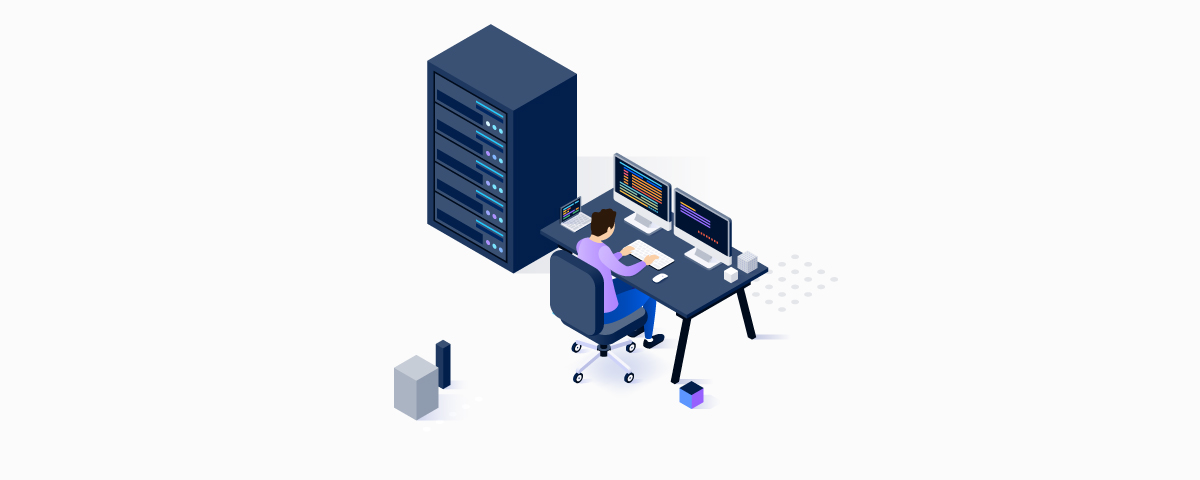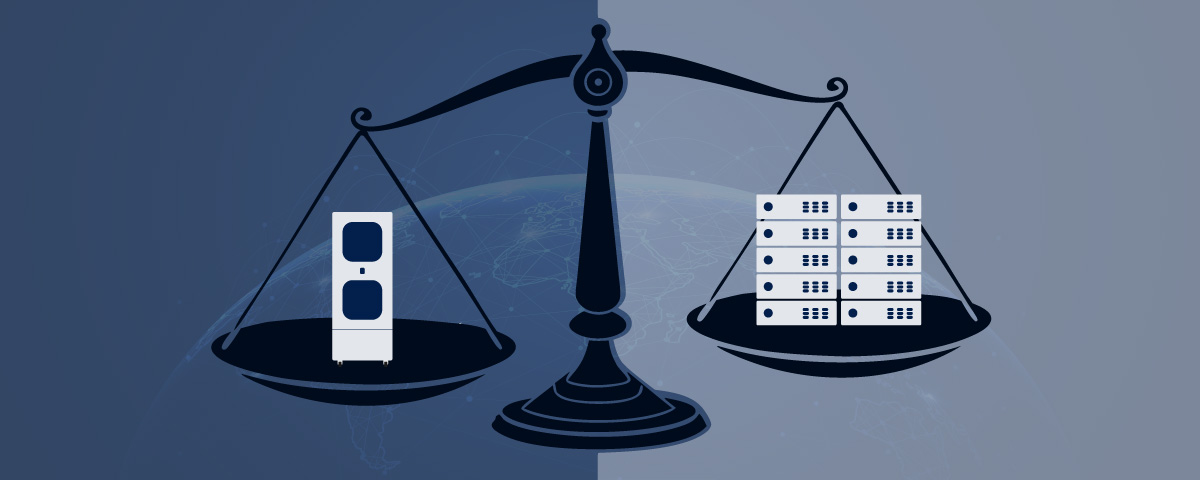What is a smart rack?
A smart rack is an advanced server rack designed to house IT equipment such as servers, switches, and storage, while incorporating intelligent features for monitoring, management, and security. It goes beyond traditional racks by including built-in sensors, remote access tools, and intelligent power distribution units (PDUs).
With a smart rack, businesses can monitor environmental conditions, manage power consumption, and enhance physical security, all remotely. This enables proactive maintenance, improved uptime, and better energy efficiency.
Key features of a smart rack
- Environmental monitoring: Sensors track temperature, humidity, airflow, and other conditions to prevent overheating and protect hardware.
- Intelligent power management: Smart PDUs allow remote power cycling, load balancing, and real-time energy tracking.
- Enhanced security: Features may include biometric authentication, RFID access control, remote locks, and even cameras or motion sensors.
- Remote management: IT admins can monitor and control the rack from anywhere, using web-based platforms with real-time alerts and analytics.
- IoT integration: Internet of Things technology enables predictive maintenance and data-driven insights to optimise performance.
- Scalability: Smart racks can be easily integrated into existing data centre environments as needs grow.
Benefits of smart racks
- Improved uptime: Early warnings and proactive responses reduce downtime.
- Energy efficiency: Intelligent systems cut unnecessary energy usage, saving on operational costs.
- Remote access: Centralise monitoring and management—even for multisite deployments.
- Stronger physical security: Secure access and surveillance features protect sensitive data.
- Lower operational costs: Less manual intervention means reduced staffing and fewer incidents.
What is a micro data centre?
A micro data centre (MDC) is a compact, self-contained IT system that includes computing, storage, cooling, power, and security, all in one enclosure. It’s designed for use in locations where deploying a full-sized data centre isn’t practical, such as remote or edge computing deployments.
Zella DC’s range of MDCs, like the Zella Pro micro data centre and Zella Outback outdoor micro data centre, are built for rapid deployment, low maintenance, and high performance in both indoor and outdoor environments.
Smart rack vs micro data centre: key differences
| Feature | Smart Rack | Micro Data Centre |
|---|---|---|
| Form factor | Open rack system | Fully enclosed unit |
| Scope | Advanced rack for IT equipment | Complete data centre in a compact unit |
| Components | Intelligent monitoring and power management | Includes cooling, power, fire suppression, and more |
| Deployment | Part of a larger data centre or IT system | Fully standalone, requiring only power and network connectivity |
| Cooling | Relies on external cooling systems | Built-in cooling system |
| Security | Rack-level security features | Comprehensive physical and cyber security |
| Applications | Enhances functionality in traditional data centres | Ideal for edge computing and remote deployments |
| Scalability | Scales within existing data centre infrastructure | Scales by deploying additional MDC units |
Smart rack vs micro data centre: use cases
Smart rack use cases:
- Enhancing traditional data centre infrastructure
- Centralised offices in controlled environments
- Organisations needing better visibility into rack-level conditions
Micro data centre use cases:
- Edge computing where data must be processed locally
- Harsh or remote environments like mining, manufacturing, or field clinics
- Locations without existing IT infrastructure
Smart rack vs micro data centre: choosing the right solution for your environment
When deciding between a smart rack and a micro data centre, consider the following factors:
Location and environment
- If your IT equipment is housed in a traditional data centre, a smart rack may be the perfect solution to enhance monitoring and management capabilities.
- For edge computing or remote locations, a micro data centre is ideal due to its self-contained design and robustness.
Scope of operations
- Large-scale operations with existing infrastructure can benefit from smart racks.
- Businesses with limited space or resources may find micro data centres more suitable.
Budget and scalability
- Smart racks are generally more cost-effective for upgrading existing systems.
- Micro data centres, while more comprehensive, offer greater flexibility for scaling in distributed environments and will be more cost effective in the long term.
Why both smart racks and micro data centres are important in modern IT
Smart racks and micro data centres play complementary roles in today’s IT ecosystems. Smart racks bring efficiency, intelligence, and security to traditional data centres, while micro data centres enable businesses to deploy reliable IT infrastructure in challenging or remote environments. Together, these technologies are paving the way for more flexible, resilient, and efficient IT operations.
The rise of smart racks reflects the growing demand for intelligent, efficient IT management tools. However, for businesses needing a complete, standalone IT solution, micro data centres are the way forward. By understanding the differences between these two technologies, you can choose the solution that best aligns with your operational goals.
At Zella DC, we offer a range of innovative solutions, including micro data centres like the Zella Pro and Zella Outback, designed to meet the demands of edge computing and beyond. While smart racks may address specific needs, our MDCs provide the full package for businesses looking to future-proof their IT infrastructure.
Explore Zella DC’s range of micro data centres and see how we can transform your IT infrastructure today.





